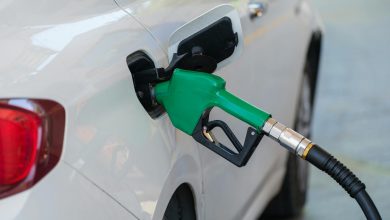How to Save Big When Buying Your First Car

This article may contain references to products or services from one or more of our advertisers or partners. We may receive compensation when you click on links to those products or services. Nonetheless, our opinions are our own.
Planning to buy your first dream car? It is a proud moment in your life. But it can also be overwhelming. Like, where do you even start? Saving money is the first big step. Planning helps you avoid overspending. Smart strategies make car buying easier. Whether you’re looking for affordable used cars or a new one, it starts with a clear plan.
In this complete guide, you’ll learn how to save wisely. Let’s get you closer to your goal.
How to Buy Your First Car in 8 Simple Steps
We’ll simplify the process so you can buy your dream car with ease:
1: Set a Realistic Budget
Setting a budget should be the first step when you buy your first car. It can help you identify what you can afford. Without a plan, you may overspend or face unexpected costs. Start with the purchase price. Add costs like insurance, registration fees, and taxes. Don’t forget maintenance, fuel, and repairs. A used car might need more care, so plan for it.
Some expenses often get overlooked. For example, unexpected repairs or parking permits. These can strain your budget if you’re unprepared.
Used cars save you money upfront. Many affordable used cars are reliable and in good condition. They let you stick to your budget while meeting your needs. Plan carefully. Budget for all costs. It’s the key to a smooth buying experience.
2. Start Saving Early and Strategically
Saving for a car becomes easier with automation. Set up a monthly transfer to a dedicated savings account. Treat it like a bill you must pay. This builds your car fund without effort. A high-yield savings account grows your money faster. It earns more interest compared to regular accounts. Over time, even small deposits can add up significantly.
Track your spending. Identify areas where you can cut back. Skip eating out or cancel unused subscriptions. Redirect those savings toward your car fund. Saving takes time, especially when buying your first car. Consistent efforts will help you hit your target without stress. A strategic savings plan gives you financial confidence. It ensures you’re ready when it’s time to buy.
3. Discover the Pros and Cons of New vs Used Cars
New cars offer peace of mind. They come with warranties and fewer mechanical issues. You also get the latest technology and advanced safety features. However, the cost is high. New cars often lose value, especially in the first year.
For first-time buyers, affordable used cars are often the wiser choice. You save money upfront. Insurance premiums are also lower. Buying used cars online gives access to a wide variety of options. Many platforms include detailed vehicle history reports for transparency.
When you buy a used car, check its history. Look for accident records, mileage, and maintenance logs. Have a trusted mechanic inspect the car before finalizing the purchase.
Think long-term. Some cars hold value better than others. A reliable used car can offer great resale potential when it’s time for an upgrade. Balancing cost, value, and reliability helps you make a wise decision. Buying used cars online is a budget-friendly solution for most first-time buyers.
4. Research the Best Financing Options
Look into all financing options. Banks and credit unions often have better rates. Dealership financing may be easier but comes with higher costs. Always read the terms carefully. A good credit score means lower interest rates. Pay off debts. Clear bills on time. Check for credit report errors. Even small improvements save money on car loans.
If you can, save and pay upfront. Avoid loans and interest altogether. Affordable used cars are perfect for this approach. Set a monthly savings goal and stick to it. Choose a plan that fits your budget. Include all costs: loan payments, insurance, fuel, and repairs. Smart financing makes buying your first car stress-free.
5. Shop Smart and Negotiate the Best Deal
Start with trusted platforms to buy used cars online. Websites like Clutch.ca, Autotrader, or Cars.com offer reliable options. Private sellers and dealerships also provide choices. Some platforms let owners sell used cars online directly. These listings often include detailed photos and vehicle histories. Be thorough. Avoid vague ads with missing details.
Research market prices before you negotiate. Compare similar cars in terms of age, mileage, and condition. Start with a fair offer, but leave room to bargain. Check the car’s history report. Look for hidden issues. Review the details to avoid overpriced cars. A well-informed buyer saves money and avoids costly mistakes.
6. Get a Pre-Purchase Inspection
A professional inspection is key, especially when buying used cars. It helps uncover hidden problems that sellers may not mention.
What to Check
Mechanics inspect critical areas like:
- Engine health – Look for leaks or worn parts.
- Brakes and tires – Ensure safety and roadworthiness.
- Mileage accuracy – Verify it matches the car’s condition.
Skipping this step can lead to costly surprises. Minor issues can quickly turn into expensive repairs. Spending a little upfront on an inspection can save you thousands later.
7. Focus on Fuel Efficiency and Long-Term Costs
Fuel efficiency matters when buying your first car. It saves you money on fuel every month. A fuel-efficient car also lowers your long-term expenses. Look for models with high mileage ratings. Compact cars and hybrids are great options. They use less fuel and cost less to maintain. Check the car’s MPG (miles per gallon).
Tools like FuelEconomy.gov provide accurate comparisons for fuel efficiency. Higher MPG means fewer trips to the gas station. This helps reduce your monthly budget.
Think ahead about resale value. Fuel-efficient cars are in demand. They hold their value better over time. Choosing the right car now can save you thousands later. Smart choices today lead to fewer financial headaches tomorrow.
8. Plan for Resale Value
A car is an investment. Its value drops over time. Choosing a car with high resale value saves money later.
Smart Tips to Retain Value
- Regular Maintenance: Stick to scheduled services. Keep the engine, brakes, and tires in top shape.
- Keep Records: Document all repairs and maintenance. Buyers trust cars with a clear history.
- Avoid Excessive Wear: Drive carefully. Limit mileage. Avoid harsh braking or overloading the car.
A car with strong resale value is easier to sell. It gives you a better deal when upgrading in the future. Focus on cars known for holding value. This ensures you save now and later.
Final Thoughts
Budgeting, smart shopping, and careful planning make buying your first car stress-free. Setting realistic goals and exploring affordable options help you save big. To save even more, buy a used car online through trusted platforms. It’s a smart way to find reliable vehicles without overspending.
With the right approach, securing your dream car won’t strain your finances. Plan wisely, shop smart, and drive away with confidence.

Reviewed and edited by Albert Fang.
See a typo or want to suggest an edit/revision to the content? Use the comment form below for feedback.
At FangWallet, we value editorial integrity and open collaboration in curating quality content for readers to enjoy. Much appreciated for the assist.
Did you like our article and find it insightful? We encourage sharing the article link with family and friends to benefit as well – better yet, sharing on social media. Thank you for the support! 🍉
Article Title: How to Maximize Savings When Buying Your First Car: A Comprehensive Guide
https://fangwallet.com/2024/12/21/how-to-maximize-savings-when-buying-your-first-car-a-comprehensive-guide/The FangWallet Promise
FangWallet is an editorially independent resource – founded on breaking down challenging financial concepts for anyone to understand since 2014. While we adhere to editorial integrity, note that this post may contain references to products from our partners.
The FangWallet promise is always to have your best interest in mind and be transparent and honest about the financial picture.
Become an Insider
Editorial Disclaimer: The editorial content on this page is not provided by any of the companies mentioned. The opinions expressed here are the author’s alone.
The content of this website is for informational purposes only and does not represent investment advice, or an offer or solicitation to buy or sell any security, investment, or product. Investors are encouraged to do their own due diligence, and, if necessary, consult professional advising before making any investment decisions. Investing involves a high degree of risk, and financial losses may occur including the potential loss of principal.
Advertiser Disclosure: This article may contain references to products or services from one or more of our advertisers or partners. We may receive compensation when you click on links to those products or services.




